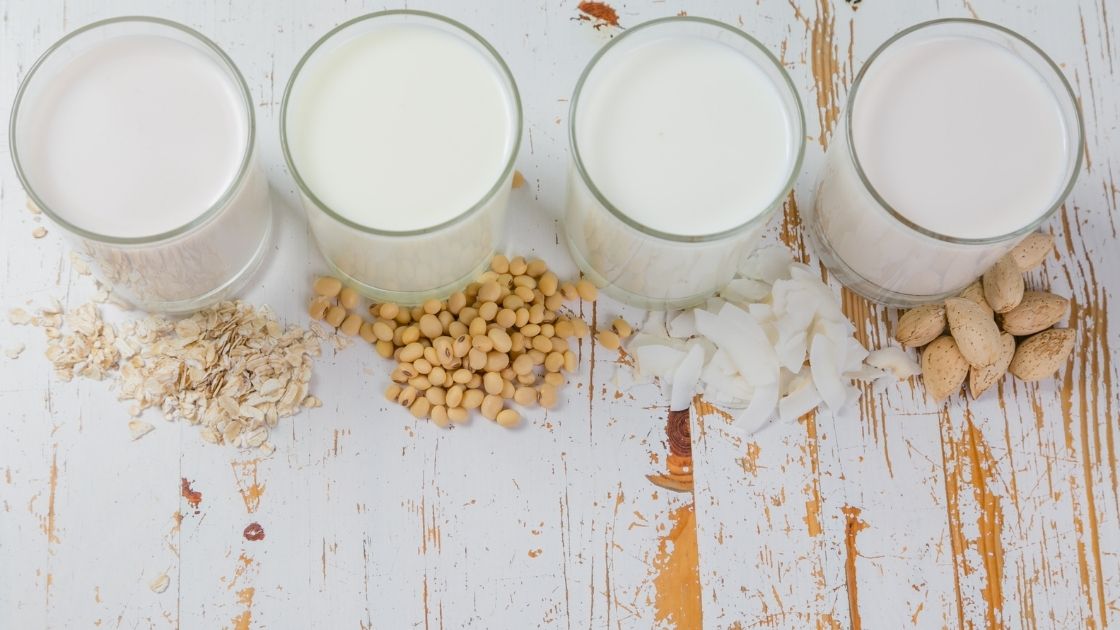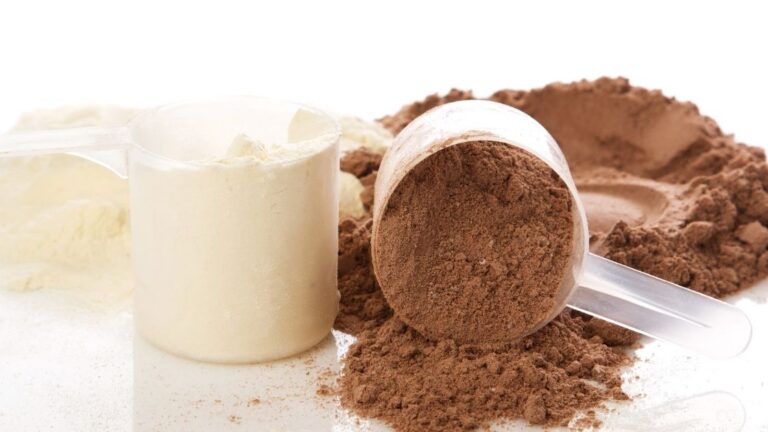Allergenic with Dairy Milk. Want o know about the non dairy substitutes for milk. Most of us grew up drinking milk before additives and added hormones were commonplace. Today, you are probably asking yourself which healthy substitutes for milk are available. There are many reasons why you would need or want to start using a milk substitute. Many of us have been through situations, or know someone with a lactose allergy or who simply milk in their diet.
Here you will learn all about the best milk substitutes that might benefit your health and weight loss journey. There are many options that you eventually might even prefer above dairy milk.
Why You Need Substitutes for Milk
No matter what your reasons may be, you are here, and we will help you learn about all the most popular dairy free substitutes for milk and why you might want to switch over.
Milk Allergy:
Dairy milk has been a contributor to various health issues in younger children and as a parent, you might not even have picked up on the fact that your child is allergic. Almost 3% of children are allergic to dairy milk and display different symptoms such as rashes, vomiting, diarrhea, and anaphylaxis. In many cases, the symptoms might not be as severe which will make it difficult for you to notice.
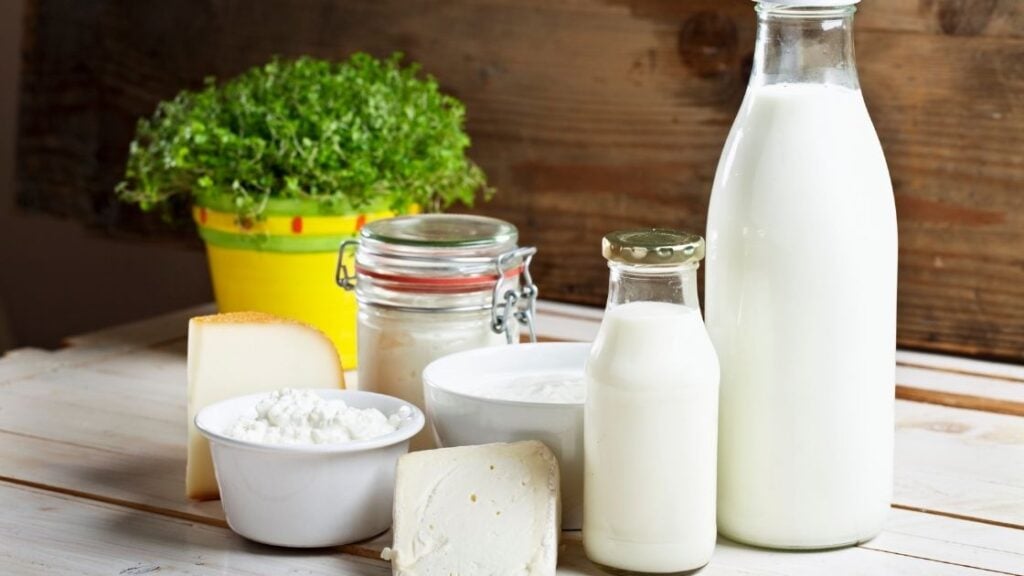
Lactose Intolerance:
The sugar found in milk is called lactose and you may be surprised to hear that nearly 75% of the world’s population is intolerant! By switching to a non-dairy milk substitute you will be able to live much more comfortably without any mild symptoms. Lactose intolerance can be caused due to a lactose deficiency and can happen at any time in life, not just from birth.
Dietary Restrictions:
Whether you are following a vegan diet that excludes all animal products, or your weight-loss diet just doesn’t allow it, there is a milk alternative for everyone. If you have chosen to take up a new diet plan you might get excited about all the alternatives you can try. There is even a milk substitute for cooking which can add a different flavor to your food.
Potential Health Risks:
There are many health risks involved with drinking milk, including the contribution to heart disease, Alzheimer’s disease, and type 2 diabetes. Some people are also concerned regarding the potential contaminants of antibiotics, pesticides, and hormones that may be found in dairy milk.
What Are the Best Non Dairy Substitutes for Milk?
With all the health risks, dietary restrictions, and more you can rest assured that there are plenty of dairy milk substitutes that will give you a new love for milk, and many more ways to use it.
Soy Milk:
Soy milk is plant-based and one of the most well-known non-dairy substitutes. The taste of soy milk is known to be mild yet creamy, making it the best option for those who want the consistency of milk with a mild taste. By choosing to add soy milk as a substitute to your life you can expect to get all the amino acids and nutrients that dairy milk normally gives you.
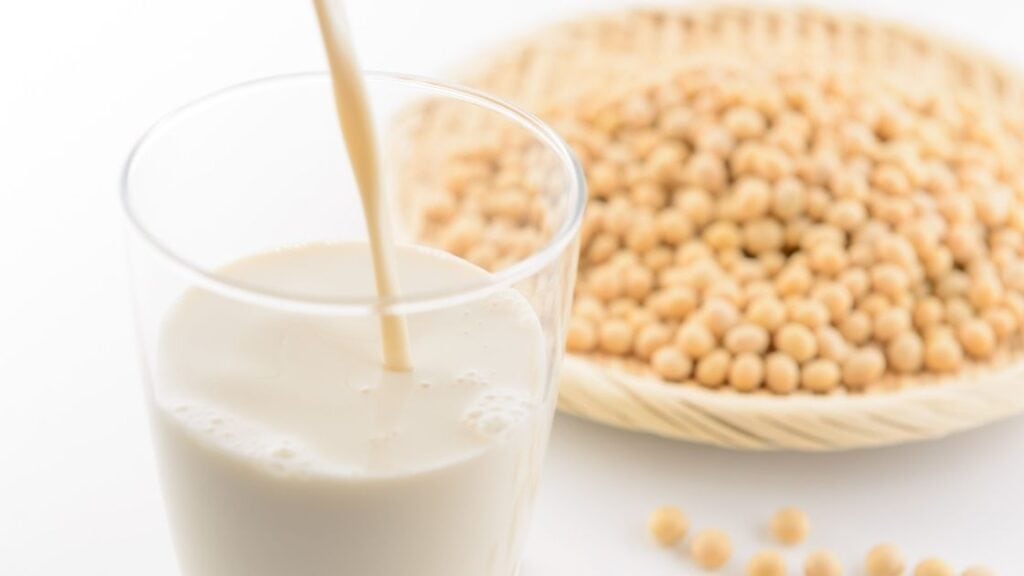
As a great source of nutrients, we recommend Silk’s Unsweetened Organic Soymilk for a healthy soy protein that is low in saturated fat, has zero cholesterol and is NON-GMO verified.
Almond Milk:
Almond milk has become one of the most popular alternatives – it is highly nutritious and delicious to boot. It is a nut-based drink that is light in flavor and is widely used in baking recipes, oatmeal, and to use in coffee and tea.
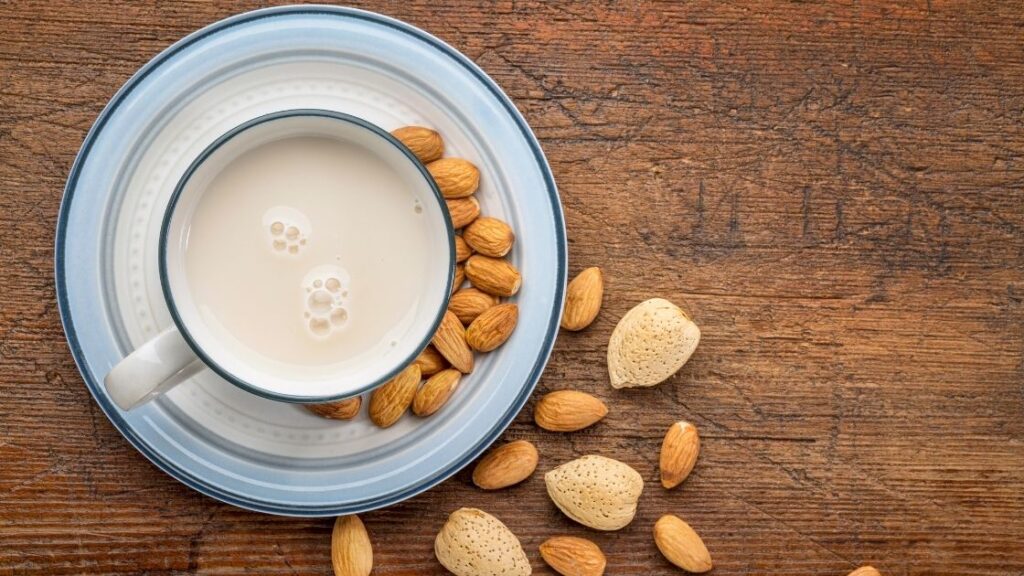
The Califia Farms Unsweetened Almond Milk is a great option for those looking for a deliciously creamy and unsweetened nut milk. With an astonishing 40 calories per serving there’s nothing to worry about when including this delicious almond liquid into your diet.
Coconut Milk:
Coconut milk is made from, you guessed it, water and a mixture of white flesh found in coconuts. As a milk substitute, coconut milk will work best for those who want a milky drink without sacrificing sweetness. Coconut is healthier than dairy milk but still has a subtly sweet taste, and only contains 45 calories and 4 grams of fat in a 240ml cup.
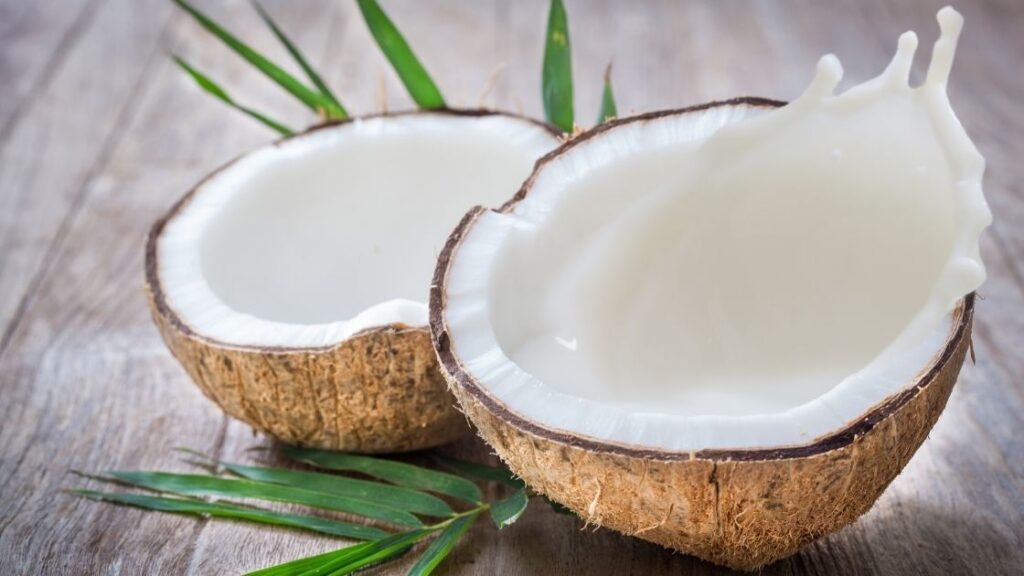
We recommend Native Forest Simple Organic Unsweetened coconut milk for its rich and creamy texture, perfect as a milk substitute for cooking Thai, Caribbean, and Indian cuisines.
Oat Milk:
Oat milk is a naturally sweet substitute with a mild flavor and is also perfect for cooking, cereals, and smoothies. Although oat milk contains the same number of calories as dairy milk it contains half the amount of fat and protein.
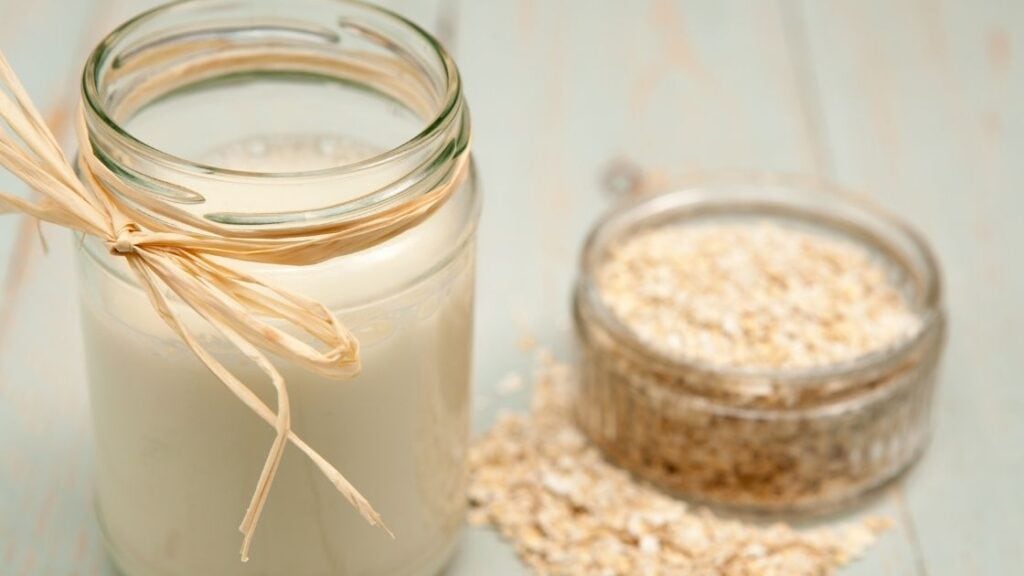
Willa’s Unsweetened Organic Oat Milk is made with only water, organic whole grain oats, salt, and organic vanilla. You won’t find another oat milk product on the market with this low amount of sugar.
Rice Milk:
Rice Milk – The alternative for those who are sensitive or allergic to dairy-milk products. It is the least allergenic substitute milk and is perfect for you if you have an allergy to dairy, gluten, soy, or nuts. It is naturally sweet in flavor with a less creamy consistency than other varieties.
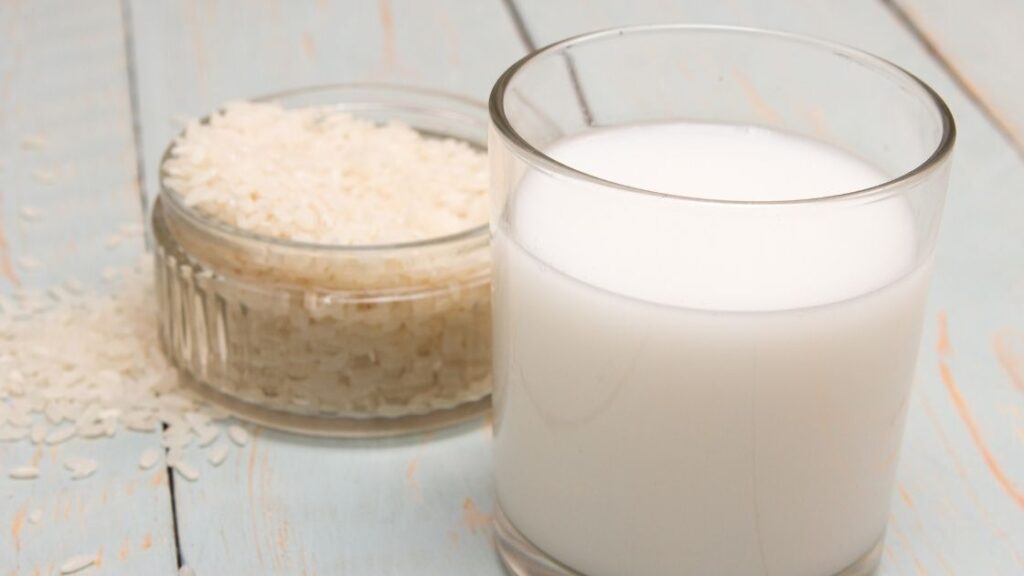
If you are sensitive to certain dairy products, we recommend Dream Blends Rice Dream Organic Rice Drink for light and refreshing flavor, with a hint of sweetness.
Cashew Milk:
Cashew milk is not recommended for those who are allergic or sensitive to nuts. Cashew milk is made from a mixture of cashew butter or nuts and water. This milk substitute has a creamy and rich flavor perfect for thicker smoothies and as a creamer for your perfect cup of coffee. You can use cashew milk for baking to add sweetness without adding too many calories as it only has between 25-50 calories per 240ml cup.
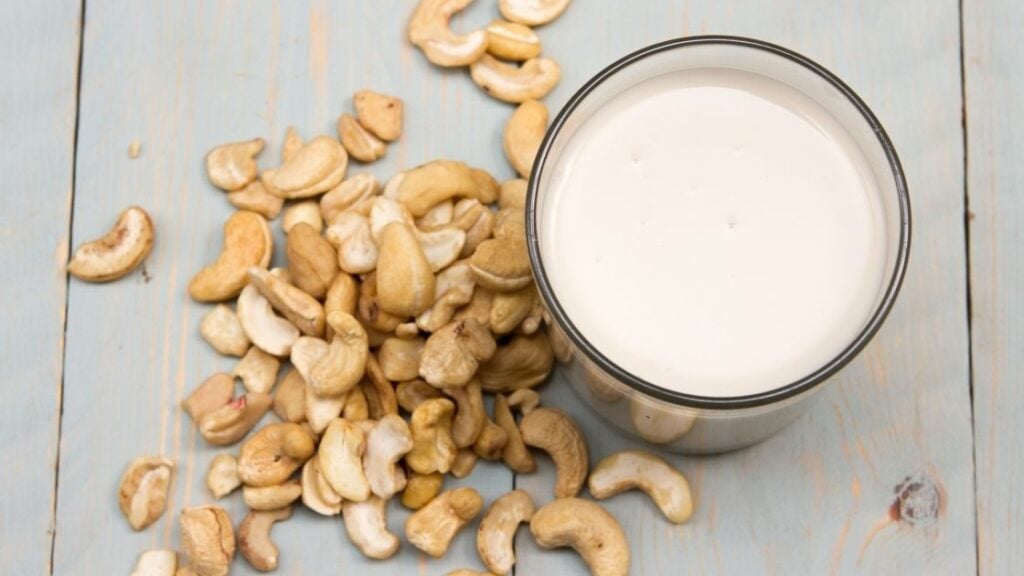
We recommend Elmhurst 1925 Milked Cashews Unsweetened Cashew Milk which is made purely from cashews and water. A creamy dairy-free milk substitute with three times the number of cashews found in other brands!
Macadamia Milk:
Macadamia milk only has around 3% macadamia nuts and water. Relatively new to the market, but quickly becoming one of the more popular milk substitutes. Non-dairy milk can sometimes taste watered down so it does not have the same consistency that milk lovers crave. Macadamia milk has a rich, smooth, and creamy flavor which will taste great in your coffee or smoothie, so it is the ideal substitute for whole milk.
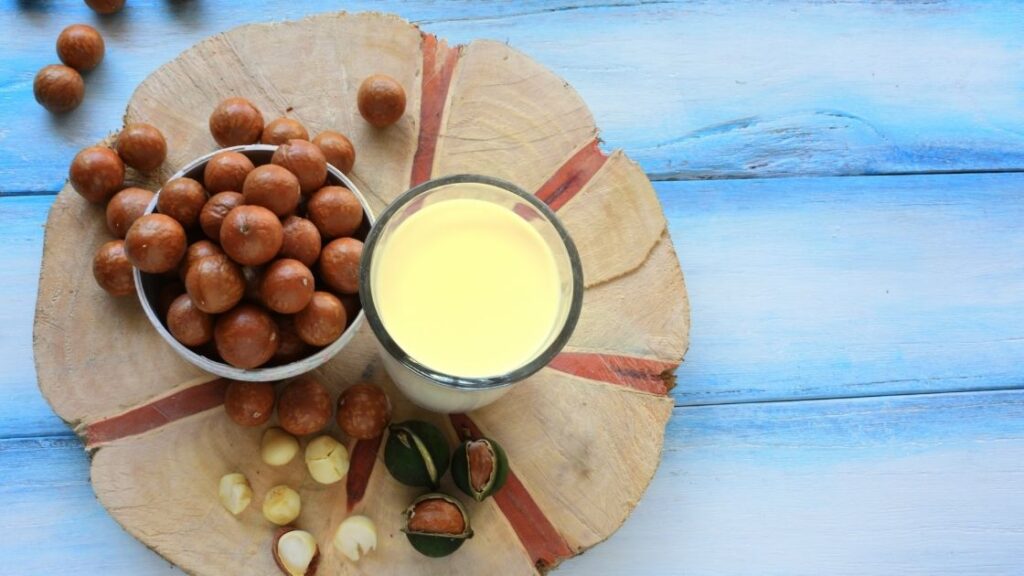
If you are interested in trying out macadamia milk, we recommend the unsweetened Macadamia Milk which is unsweetened, plant-based, dairy-free, soy-free, and non-GMO. It is tasty and contains only 50 calories per serving.
Hemp Milk:
Made from hemp plant seeds, it has a slightly sweet and nutty taste with a thin consistency that works great as an alternative if you are used to skim milk. You can expect a well-rounded nutrient base for hemp milk as it contains the same amount of fat as dairy but with half the number of calories and proteins and fewer carbohydrates.
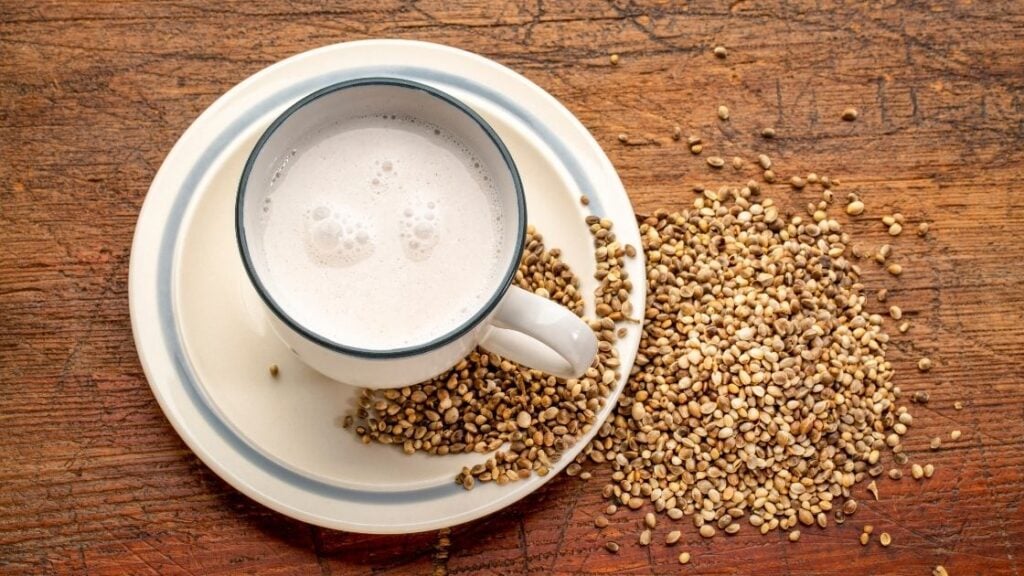
We recommend Pacific Foods Hemp Original Unsweetened Plant-Based hemp milk as a great source of calcium, magnesium, vitamin D, and Omega 3.
Quinoa Milk:
If you are into superfoods this is the best substitute for you. Quinoa has become an extremely popular superfood, even if it is relatively new to the market. It offers a slightly sweet and nutty taste with the distinct flavor of Quinoa grains.
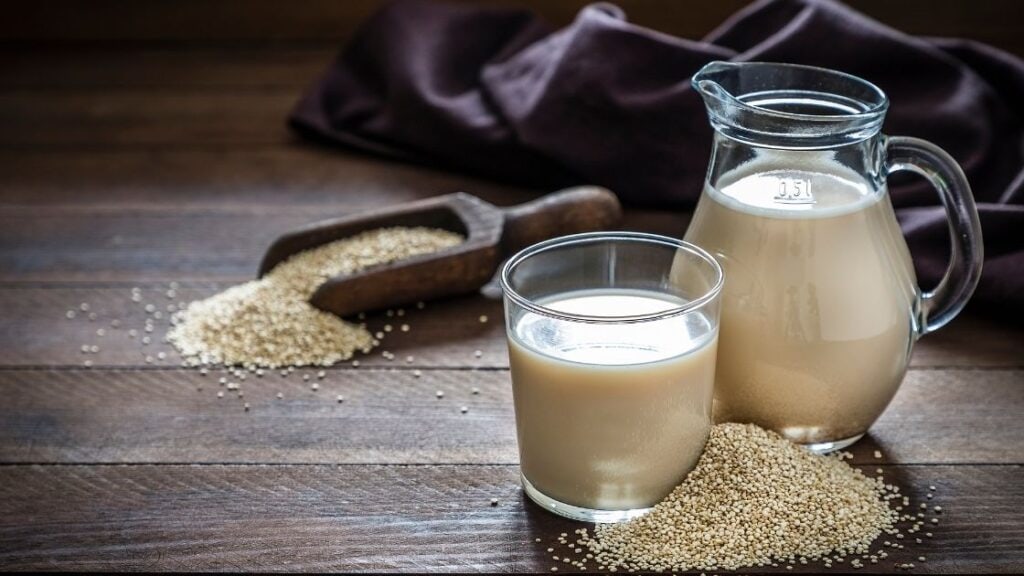
If you want to try super healthy quinoa milk, we recommend Ripple Store’s Non-Dairy Plant Protein Milk. It contains pea protein with higher nutritional value than found in other milk substitutes.
What to Consider When Substituting:
By now you hopefully have a good idea of which is the best milk substitute that will work for you. But before you make your final decision you need to consider the following important points;
Added sugar: If a brand stipulates sugar as one of the three main ingredients you should steer clear – it is certainly not a healthy alternative. Many dairy alternatives do have added sugar which can be negative to your health. Opt for an unsweetened product with highly nutritious values.
Calcium content: Cows milk contains calcium which is vital for healthy bones and for preventing osteoporosis. It is important to choose a product that contains at least 120 mg of calcium per 100ml to stay healthy.
Vitamin B12: Vitamin B12 is usually found in animal products and is important to develop and maintain a healthy brain and immune system. If you are not consuming any dairy products, you may not be getting enough vitamin B12 to maintain a healthy lifestyle. Choose your substitutes that are enhanced with vitamin B12.
Additives: Carrageenan and vegetable gums are usually found in milk substitutes to make the consistency smoother and thicker to replicate the same texture as dairy. People have their own opinions about these ingredients, but some do prefer to steer clear of them.
Dietary needs: Milk substitutes are mostly made from plants and nuts which you could also be allergic to. It is important to carefully consider the ingredients of each product to be sure you are not consuming products that might be even more dangerous to your health.
Milk it for What It’s Worth
Making the switch from dairy milk to substitutes could provide you with many health benefits and a variety of tastes and flavors to add to meals, smoothies, and even coffee. Of course, you can also drink it naturally.
Be sure to try the recommended products on this list if you want the most nutritious and tasty options! With these organic products, you will quickly start to feel the positive effects of milk substitutes.
